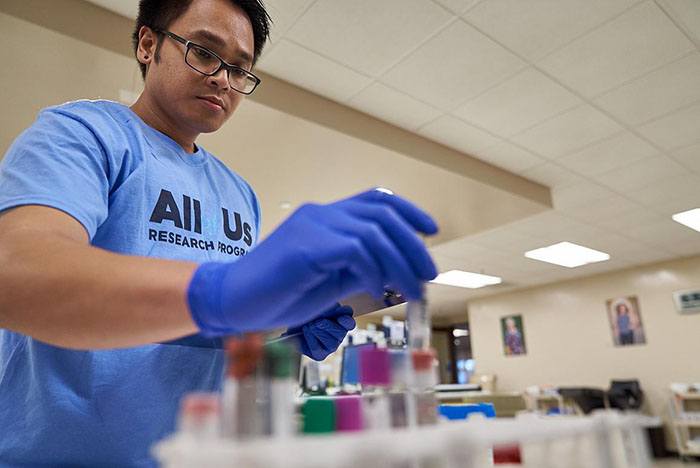IRP study offers new evidence of early SARS-CoV-2 infections in U.S.
A new antibody testing study examining samples originally collected through the National Institutes of Health’s All of Us Research Program found evidence of SARS-CoV-2 infections in five states earlier than had initially been reported. These findings were published in the journal Clinical Infectious Diseases. The results expand on findings from a Centers for Disease Control and Prevention study that suggested SARS-CoV-2, the virus that causes COVID-19, was present in the U.S. as far back as December 2019.
In the All of Us study, researchers analyzed more than 24,000 stored blood samples contributed by program participants across all 50 states between Jan. 2 and March 18, 2020. Researchers detected antibodies against SARS-CoV-2 using two different serology tests in nine participants’ samples. These participants were from outside the major urban hotspots of Seattle and New York City, believed to be key points of entry of the virus in the U.S. The positive samples came as early as Jan. 7 from participants in Illinois, Massachusetts, Mississippi, Pennsylvania and Wisconsin. Most positive samples were collected prior to the first reported cases in those states, demonstrating the importance of expanding testing as quickly as possible in an epidemic setting.
“This study allows us to uncover more information about the beginning of the U.S. epidemic and highlights the real-world value of longitudinal research in understanding dynamics of emerging diseases like COVID-19,” said Josh Denny, M.D., M.S., chief executive officer of All of Us and an author of the study. “Our participants come from diverse communities across the U.S. and give generously of themselves to drive a wide range of biomedical discoveries, which are vital for informing public health strategies and preparedness.”
This page was last updated on Friday, January 21, 2022
